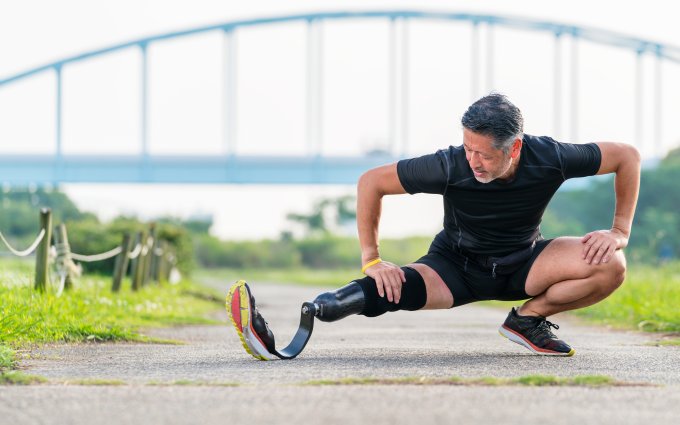06/11/2013

Exercise supports physical health for anyone, but it may also provide mental health flexibility and stability that helps individuals dealing with amputation(s) cope during difficult times. Exercise improves balance, protects range of motion, helps muscle growth, and manages systemic health concerns like weight and blood pressure. In addition, regular exercise may have a measurable impact on depression, lessening instances and duration of major depression in amputees.
Strength training, especially resistance training, encourages healthy muscle growth. In cases of amputation, that healthy muscle growth offsets atrophy that can occur after surgery. Increasing muscle mass also increases metabolism, which helps keep weight gain under control. The Hospital for Special Surgery encourages strength training two or three times each week, according to AZcentral.com.
After amputation, long periods keeping a limb in the same position can result in contracture—especially in the lower extremities. Contracture can cause joint stiffness and result in trouble fitting prosthetics. Stretching and flexibility exercises performed throughout the day for thirty seconds at a time can help prevent contracture. Together, resistance training and stretching keep muscles more flexible and healthier after amputations.
Decreased activity and mobility after surgery, combined with the stress and emotional impact of losing a limb, can lead to widespread health problems like weight gain and high blood pressure. Regular exercise combats those problems, so amputees can focus on healing and recovering an active, fulfilling life.
Regular exercise can also help the body adjust to shifts in balance after the loss of a limb. A prosthetic will restore movement, but with a slightly different motion and weight than the original limb. That means the body must adjust to a new center of balance. Regular agility exercises will make that process smoother and less painful.
Major depression and other serious psychological effects can stem from amputations. Exercise encourages the release of endorphins and neurotransmitters associated with positive emotional states. Exercise can also make the transition to working with a prosthetic smoother, helping amputees feel a sense of control and confidence in their abilities.
Paradigm Outcomes is always ready to assist with complex medical cases. For more information on our full-service offerings or to find out more about catastrophic care management, please contact us through our website or call (888) 621-6602. We also invite you to join our social communities on LinkedIn, Twitter, YouTube and Facebook.